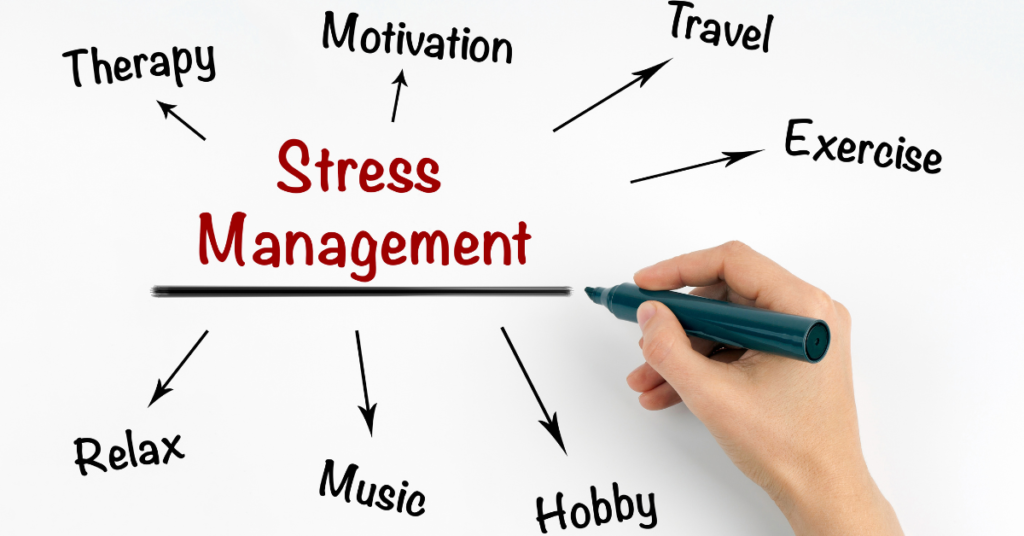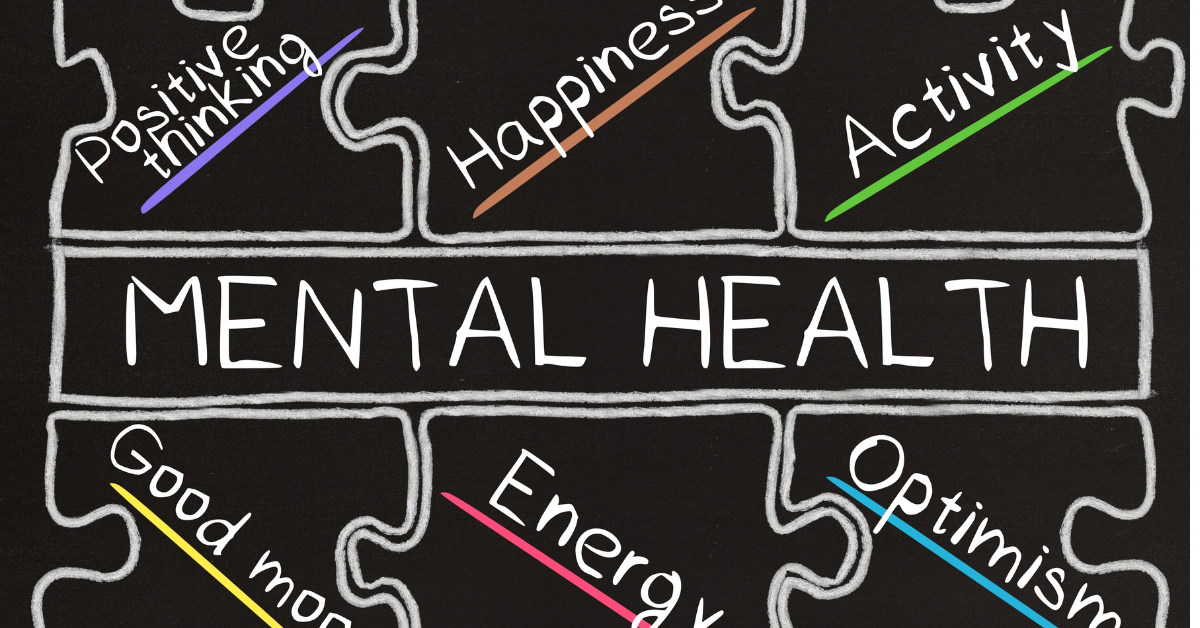Flourishing at 40+: The Ultimate Guide to Mental Health for Women
Are you a woman in your 40s or beyond, feeling like life has thrown you some curveballs? You’re not alone.
As we age, women often face unique challenges that can impact our mental health – but it’s never too late to make positive changes and take control of your well-being.
Welcome to ‘Flourishing at 40+: The Ultimate Guide to Mental Health for Women,’ where we’ll explore practical tips and strategies designed specifically for women navigating this transformative time in their lives.
We understand that every woman’s journey is different, so there’s no one-size-fits-all approach here.
Instead, we’ve gathered expert advice from psychologists, therapists, and researchers in the field of mental health for women over 40.
We’ll dive into topics such as managing stress and anxiety during menopause, building resilience after divorce or loss, maintaining healthy relationships with adult children, and much more.
So let’s get started on learning how to thrive at any age!
Recognizing Signs Of Mental Health Issues

As women approach their 40s and beyond, recognizing the early symptoms of mental health issues becomes increasingly important. Many factors such as hormonal changes, life stressors, and societal expectations can contribute to the development or exacerbation of these conditions. It’s essential for women to be aware of potential warning signs in order to address them promptly and seek appropriate support.
One major challenge when it comes to addressing mental health concerns is overcoming communication barriers that may prevent open dialogue about emotional wellbeing. Women might hesitate to discuss their feelings due to fear of judgment or rejection from loved ones or healthcare providers. Additionally, some may not recognize certain behaviors as indicators of a problem, making it difficult for those around them to provide assistance.
To combat these challenges, cultivating trust within personal relationships and fostering open conversations about mental health are vital steps towards breaking down these barriers.
Taking preventative measures plays an equally crucial role in maintaining optimal mental health throughout this stage of life. This involves nurturing positive habits like regular exercise, healthy eating, sufficient sleep, and engaging in activities that promote relaxation and stress reduction. Moreover, staying connected with friends and family members contributes significantly to one’s overall sense of well-being.
By actively prioritizing self-care while remaining vigilant about possible warning signs, women can help ensure they maintain strong mental health during their 40s and beyond.
Understanding The Impact Of Hormonal Changes

As we grow older, it’s essential to acknowledge and embrace the transformations our bodies undergo. These changes aren’t just physical; they’re deeply intertwined with our mental well-being too. One significant aspect that influences both is hormonal fluctuations, which can have a profound impact on every woman in her 40s and beyond.
Hormone replacement therapy (HRT) is often prescribed to help alleviate symptoms of menopause, such as hot flashes, mood swings, and sleep disturbances. It aims to restore balance by supplementing hormones like estrogen and progesterone that naturally decline during this stage of life.
However, HRT isn’t without its risks and potential side effects. For instance, studies have shown an increased risk of blood clots, stroke, and even some types of cancer among women who use certain forms of HRT for extended periods. That said, many still benefit from carefully monitored hormone replacement therapy under their doctor’s supervision when other menopause management options haven’t provided relief.
Another factor worth considering is how birth control methods might be affecting your mental health at this age. While contraceptives are primarily known for preventing pregnancy, they also play a role in regulating hormonal levels—usually through synthetic versions of estrogen or progestin—and thus may influence mood-related conditions like anxiety or depression.
Some women report improved moods after switching to non-hormonal contraceptive methods while others find relief from depressive symptoms with particular formulations of hormonal birth control pills. Regardless of your situation, discussing these concerns with your healthcare provider will ensure you make informed decisions about managing both your reproductive health and mental well-being throughout your 40s and beyond.
Developing A Self-Care Routine

As we’ve seen, hormonal changes can significantly impact mental health in women over 40. While it’s essential to be aware of these shifts and their potential effects on your well-being, it’s equally crucial to take proactive steps towards self-care.
By developing a personalized routine that fits your unique needs, you’ll not only find relief from the challenges brought about by hormone fluctuations but also experience overall improvements in your mental and emotional state.
One of the most significant benefits of having a regular self-care routine is its ability to foster consistency and stability in our lives. Routine benefits include promoting better sleep patterns, reducing stress levels, and improving physical health – all factors that contribute positively to mental health.
To create a personalized self-care plan that works for you, consider incorporating activities like exercise, meditation, journaling, or socializing with friends into your daily life. Remember that what feels nurturing and restorative for one person may not work for another; finding the right balance is key.
Overcoming barriers such as time constraints or lack of motivation may seem challenging at first when establishing a new self-care routine. However, setting realistic expectations and focusing on incorporating small yet meaningful habits often leads to long-lasting change.
Consider starting with just a few minutes each day dedicated to an activity you enjoy before gradually increasing the duration or frequency as needed. Not only will this gradual approach make sticking to your newfound routine more manageable, but it will also allow you to discover which activities genuinely bring joy and peace into your life–ultimately helping improve your overall mental health beyond age 40.
Practicing Stress Management Techniques

Imagine feeling calm and centered amidst the chaos of daily life. It’s not a pipe dream; it can be your reality by practicing stress management techniques regularly.
One such technique that has proven to be effective in reducing anxiety is mindful meditation, which encourages individuals to focus on their breath while gently letting go of any thoughts or distractions that arise.
Incorporate mindfulness into your routine with simple exercises designed to promote relaxation and mental clarity. For instance, set aside ten minutes each day for deep breathing exercises, focusing on slow inhales and exhales while releasing tension throughout your body.
Additionally, explore holistic approaches like yoga, tai chi, or even adult coloring books to take a break from negative thought patterns and immerse yourself in more creative outlets. By trying various activities that resonate with you personally, you’ll discover unique ways to effectively manage stress levels.
As women over 40 continue striving for optimal mental health, prioritizing self-care through stress management becomes essential for overall well-being. Through regular practice of mindful meditation and other anxiety-reducing exercises tailored to individual preferences, we can cultivate inner peace despite external challenges constantly arising during our journey called life.
So let’s embark upon this quest together – one deep breath at a time!
Utilizing Support Systems

As we navigate the complexities of life, especially during our 40s and beyond, it’s essential to surround ourselves with a strong support system. Building connections with others who share similar experiences or challenges can be incredibly empowering and beneficial for maintaining good mental health. Support groups, whether online or in person, are an excellent way to find solace as you walk this journey.
Family involvement is another crucial aspect of fostering positive mental wellbeing at any stage in life. They say that blood is thicker than water, and having your family on board as part of your support network can make all the difference when times get tough. Be open about your struggles with them; they might have insight or advice based on their own experiences.
It’s also important not to forget the power of friendship – reach out to old friends and work on nurturing new relationships too. The importance of utilizing these resources cannot be overstated: engaging in support groups where shared stories offer comfort, leaning into family love and wisdom, and cultivating friendships rich in empathy and understanding will significantly contribute to a healthier mindspace throughout one’s lifetime.
So go ahead – take advantage of these invaluable assets available around you, knowing that every step forward brings you closer to achieving optimal mental health in your flourishing years.
Discussing Mental Health With Your Doctor

Imagine walking into your doctor’s office, the warm sunlight streaming through the windows, and feeling a sense of relief knowing that you are about to have an open conversation about your mental health. Fostering a strong doctor-patient relationship is essential for achieving optimal results in addressing any concerns or symptoms that may be affecting your well-being.
By being honest and transparent with your medical provider from the get-go, you pave the way for stigma reduction surrounding mental health issues. It’s important to remember that discussing mental health can feel daunting at first – but it doesn’t have to be!
Taking control of your own narrative and expressing how you truly feel will help guide this crucial conversation towards finding potential medication options or therapies suitable for your specific needs. Make sure to ask questions if there is anything unclear or if you want more information on certain topics; an understanding physician will appreciate your active involvement in this collaborative process.
As you leave that sunlit room following a productive discussion with your healthcare professional, take pride in having taken such an important step forward in prioritizing self-care and nurturing emotional wellness. This newfound knowledge around treatment possibilities empowers you not only as a patient but also as an advocate against societal stigmas attached to mental health conditions.
The journey toward flourishing at 40+ starts with recognizing our vulnerabilities and embracing them wholeheartedly by seeking guidance from qualified professionals who support us every step of the way.
Exploring Mental Health Resources

Are you ready to take a deep dive into the world of mental health resources? There’s an abundance of tools and support systems available at your fingertips, just waiting for you to explore.
From online therapy options to mindfulness exercises or local support groups, there is something out there that will fit your unique needs and help you flourish as a woman over 40.
Online therapy has become increasingly popular in recent years, offering convenience and accessibility for those seeking professional guidance. It allows you to connect with licensed therapists from the comfort of your own home through video calls, messaging, or even phone sessions. This can be especially helpful if you’re juggling work, family life, and other responsibilities while trying to prioritize your mental well-being.
Additionally, mindfulness exercises such as meditation or yoga are excellent practices that can help improve focus and reduce stress levels – two essential components in maintaining good mental health.
If connecting with others who share similar experiences appeals to you, consider looking up local support groups catering specifically towards women aged 40 and above. These gatherings provide an opportunity for meaningful connections and shared learning around common challenges faced by women in this age group.
By taking advantage of these various resources, remember that it’s never too late to invest in yourself and prioritize your mental health journey – because flourishing at any age starts with nurturing our minds!
Frequently Asked Questions
How Do Lifestyle Factors, Such As Diet And Exercise, Affect Mental Health For Women Over 40?
Lifestyle factors, such as diet and exercise, play a significant role in mental health for women over 40.
Dietary impact can’t be overstated; consuming nutrient-rich foods supports brain function while reducing the risk of cognitive decline.
Additionally, exercise benefits both physical and mental well-being by releasing endorphins, improving mood, and promoting better sleep.
Speaking of sleep importance, getting enough rest is crucial for maintaining emotional balance and overall mental health.
Thus, adopting healthy habits like proper nutrition, regular physical activity, and prioritizing sleep are vital components in ensuring optimal mental health for women aged 40 and beyond.
What Are Some Unique Challenges That Women Over 40 May Face In Maintaining Mental Health Compared To Younger Women Or Men Of The Same Age?
Women over 40 may face unique challenges in maintaining mental health compared to younger women or men of the same age due to midlife transitions, hormonal fluctuations, and varying levels of emotional resilience.
These transitions can include career shifts, empty nest syndrome, caregiving for aging parents, and changes in relationship dynamics.
Hormonal fluctuations during perimenopause and menopause can also significantly impact mood, sleep patterns, and overall mental well-being.
Developing emotional resilience is crucial for navigating these challenges effectively and fostering a healthy mindset as they age.
How Can Women Over 40 Balance Family Responsibilities, Career Demands, And Self-Care In Order To Maintain Good Mental Health?
Balancing priorities, stress management, and emotional resilience are crucial for women over 40 as they navigate the challenges of family responsibilities, career demands, and self-care in order to maintain good mental health.
It’s important to set realistic expectations, prioritize tasks based on importance and deadlines, delegate when possible, and schedule regular breaks for relaxation or hobbies.
Additionally, nurturing one’s emotional well-being through mindfulness practices or therapy can build resilience against life’s inevitable stressors.
Developing a strong support network – including friends, family members, or professional help if needed – also plays a significant role in finding balance and sustaining mental wellness.
Are There Any Specific Mental Health Concerns That Arise During Perimenopause And Menopause, And How Can Women Address These Issues?
During perimenopause and menopause, women may experience specific mental health concerns such as menopause anxiety and cognitive changes. These issues can arise due to hormonal fluctuations that affect mood, memory, and overall well-being.
To address these challenges, hormone therapy is often recommended as it can help regulate hormones and alleviate some of the associated symptoms.
Additionally, maintaining a balanced lifestyle through self-care practices like regular exercise, proper nutrition, stress management techniques, and seeking support from friends, family or professionals can also aid in improving mental health during this transitional period.
How Can Women Over 40 Proactively Work Towards Maintaining Mental Health As They Age, And What Preventive Measures Can Be Taken To Reduce The Risk Of Developing Mental Health Issues Later In Life?
To proactively maintain mental health as they age, women over 40 should be aware of and address factors such as aging stigma, hormonal shifts, and social isolation.
By challenging societal norms that perpetuate negative stereotypes about older adults, women can foster a positive self-image and build resilience against the detrimental effects of aging stigma.
Additionally, staying informed about perimenopause and menopause helps in understanding hormonal changes and seeking appropriate treatments to manage symptoms effectively.
Lastly, nurturing strong social connections through activities like volunteering or joining clubs prevents feelings of loneliness and promotes overall emotional well-being, reducing the risk of developing mental health issues later in life.
After the Facts
It’s essential for women over 40 to prioritize their mental health by focusing on self-care and addressing challenges unique to their age group.
By finding ways to balance family, career, and personal well-being, they can truly flourish throughout this stage of life.
Always remember that proactive approaches towards maintaining mental health are crucial in preventing issues later on.
So ladies, let’s work together in taking care of ourselves both mentally and physically as we gracefully enter our fabulous forties and beyond!







